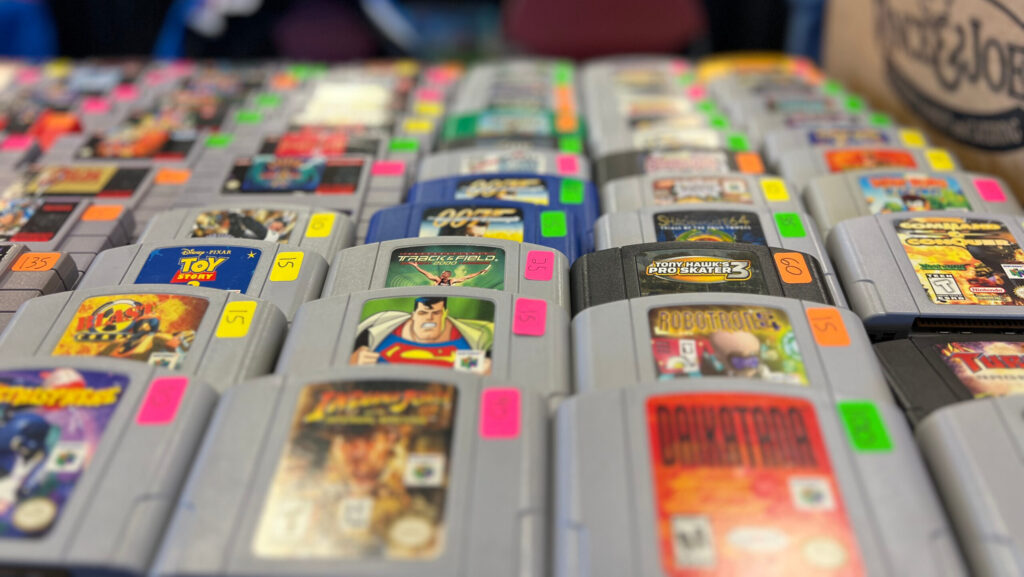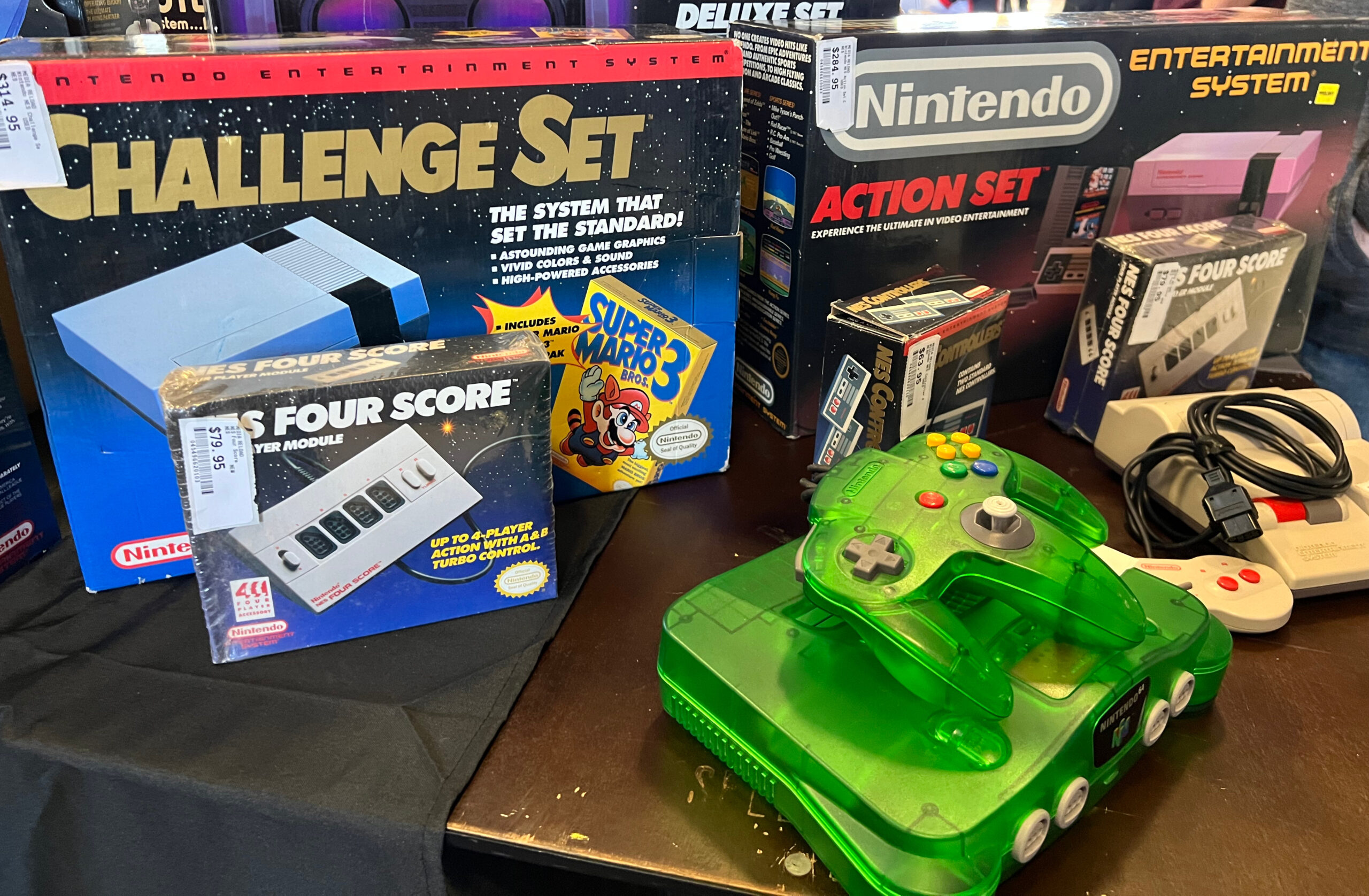The video games industry is a global multi-billion dollar business, generating $57 billion in the U.S. alone in 2023. Gaming has come a long way since the days of tiny pixels and the North American video games crash in the early 1980s — but nostalgia has fueled a demand for retro games.
That demand has also made the hobby more expensive for both casual gamers and the most dedicated collectors, especially during the height of the COVID-19 pandemic. However, some experts say the upward trend started even before the pandemic.
“A lot of people think that the pandemic started the surge in retro gaming. It really started with the NES Mini,” said Andy Duff, founder of the Detroit Retro Gaming Show.
Listen: Detroit Retro Gaming Show hopes to expand as demand increases
He’s referring to the miniature replica NES console Nintendo released in 2016 that included 30 built-in games from the company’s iconic 8-bit catalog. A limited amount of consoles were produced, leading to high demand — and even higher prices in the secondary market.
“All of a sudden, there was a few of them out there, and Nintendo just didn’t produce enough. They either didn’t think that not that many people were interested, or they created a low amount just to create a demand,” Duff said. Whatever the case may be, that, in my opinion, is what really started [it]. Because when the NES Mini came up, seemed like everybody wanted to have one because a lot of people are not necessarily tech savvy. It’s very easy to go home and just slip right up to your TV like a DVD player. You’re up playing Super Mario Bros. for the first time in 30 years.”
The Detroit Retro Gaming Show hosted its largest edition at Southfield Pavilion last month. Vendors filled tables full of plastic cartridges for vintage systems like the Super Nintendo, the Sega Genesis, the portable Game Boy and more. Duff’s longtime passion for video games and attending retro shows outside of Michigan inspired him to start his own expo.
“I have always been fascinated with video games from a very young age. Going back to the ’70s, I can remember somebody telling me, ‘Hey, this guy down the streets got a system hooked up to his TV that you can bounce balls back and forth.’ I would like to see that, right? And so as it evolved, the video game industry went through a slump there for a minute, and then it came back. And especially in the ’90s. The ’90s are when video games grew up, when they got personality. I had been attending video game conventions in Ohio and Wisconsin for well over a decade, wondering why nobody ever did one here, and so out of necessity, here we are.”

April marked the first time the Detroit Retro Gaming Show moved to the Southfield Pavilion. The change in venue was necessary after the event outgrew its previous home at the Elks Lodge in Livonia.
“It grew very fast. The very first year, we only did 300 people,” Duff recalls. Then the next year, we did 600 and then when we got to the third year, last year, we were at 1200 people. So as we grew, we needed to add more attractions. So it’s not just a swap meet, because that’s basically how we started — a little flea market.”
Jake Braga is the owner of Reboot Repair South in Eastpointe. They sell used video games and systems, as well as offering tech repair services. So, how’s business lately for a retro games store owner?
“it’s been good. You know, our main bread and butter at our stores [is] repairs,” Braga shared. “We do repairs — everything from like Atari to PS5, and we do mods of older systems and things. There’s still definitely a big audience for retro gaming, for sure. We see it every day.”
A first for the Detroit Retro Gaming Show was celebrity appearances, including brothers Daniel and Carlos Pesina — who portrayed iconic characters like Johnny Cage and Raiden in the original Mortal Kombat game — and the voice of NBA Jam himself, Tim “Boomshakalaka” Kitzrow.
Duff knows it’s a delicate balancing act scaling up the Detroit Retro Gaming Show in a sustainable way.
“That’s a tough balance to ride, especially in the last two years,” Duff admits. “Every dime that comes in goes back into the show. So if you look at the arcade games that we have out there, the pinball games, that has come from money that’s coming from the show. And this is not necessarily a huge profit, as it is growing the brand. People look at me and say, ‘Wow, you’re making all this money.’ Well, no, I’m not. It costs money to bring these celebrities out here. Cost money to buy the equipment and the decorations and the help — so is what I want to be a Detroit event.”
Duff is considering changing the format of the Detroit Retro Gaming Show from two one-day shows a year to a single annual two-day weekend expo in the fall. The challenge with that scenario is competition for attendees. Both the fall edition of Motor City Comic Con and Detroit anime convention Youmacon tend to fall within the same timeframe.





